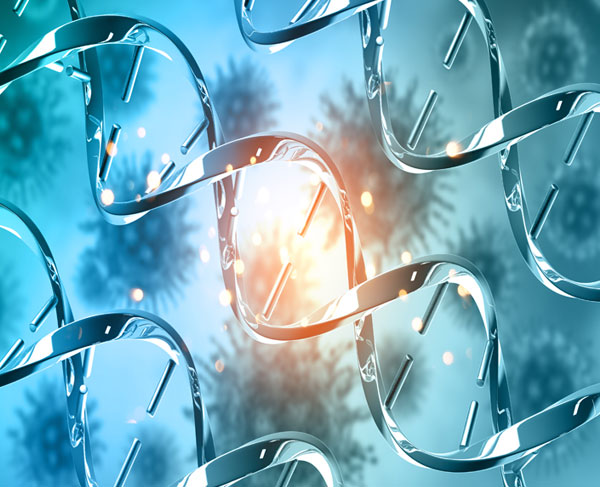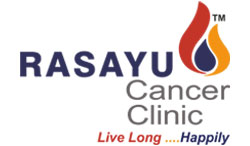Cancer Types
- Bladder Cancer
- Bone Cancer
- Breast Cancer
- Cervical Cancer
- Colorectal Cancer
- Endometrial Cancer
- Head & Neck Cancer
- Kidney Cancer
- Laryngeal Cancer
- Leukaemia
- Liver Cancer
- Lung Cancer
- Multiple Myeloma
- Nasopharyngeal Cancer
- Non-Hodgkin's Lymphoma
- Oesophagus Cancer
- Oral Cancer
- Ovarian Cancer
- Pancreatic Cancer
- Prostate Cancer
- Skin Cancer
- Stomach Cancer
- Testicular Cancer
- Thyroid Cancer
Opening Hours
- Monday - Saturday 10:00 am - 07.00 pm

Colorectal Cancer
- Colon cancer originates in the large intestine. Large intestine is the lower part of digestive system.
- Most Colon cancers originate from small, noncancerous tumors called adenomatous polyps that form on the inner walls of the large intestine, of which, few polyps grow into malignant Colon cancer over time.
- Colon cancer along with Rectal cancer is the fourth most common cancer in men and the third most common cancer in women worldwide. It is found to be 10.2% of the global cancer patients.
- The mortality rate in this type of cancer is 9.2% of the total cancer patients as per the study of Globocan (2018), a global cancer study centre.
- The overall 5-year survival rate is 63%.
- Localized cancer survival rate is 90% and cancer that spreads to surrounding tissues, organs and/or the regional lymph nodes, the 5-year survival rate is 71%.
- If colon cancer has spread to distant parts of the body, the 5-year survival rate drops to 14%.
In rectal cancer, the overall 5-year survival rate for people is 67% and in localized rectal cancer, the survival rate climbs up to 89%. - If the cancer has spread to surrounding tissues or organs and/or the regional lymph nodes, the 5-year survival rate is 71%.
- If the cancer has spread to distant parts of the body, the 5-year survival rate is 15%. (as per data from American Society of Clinical Oncology).
- Types of Colorectal Cancer :
– Adenocarcinoma
– Carcinoid Tumors
– Gastrointestinal Stromal Tumors
– Lymphoma
– Hereditary Colon Cancer
Causes
- Diet rich in red meat and processed meat.
- Meat cooked at very high temperature.
- Smoking.
- Alcohol.
- Overweight.
- Lack of exercise.
Carcinogenic agent with sufficient evidence in humans (Ref-IARC)
- Alcoholic beverages.
- Processed Meat Consumption.
- Tobacco Smoking.
- X-radiation, gamma-radiation.
Agents with limited evidence in humans (Ref- IARC)
- Asbestos (all forms).
- Night shift work.
- Red meat (consumption).
- Schistosoma Japonicum.
- Colon Polyp.
- Ulcerative Colitis.
- Crohn’s Disease.
- Lynch syndrome.
- Familial Adenomatous Polyposis.
Signs and Symptoms
- Change in bowel habits, including diarrhoea or constipation.
- A change in the consistency of stool.
- Rectal bleeding or blood in stool.
- Persistent abdominal discomfort, such as cramps, gas or pain.
- A feeling that bowel doesn’t empty completely.
- Weakness or fatigue and Unexplained weight loss etc.
Investigations
- Physical examination and history – piles, fissures, swelling at the anal opening, discharge needs to be examined. History of severe and chronic constipation and other related symptoms should be assessed.
- Biopsy –
If polyp is found in colonoscopy, it is resected and sent for examination. If doctor notices any abnormal growth, piece of it is removed and checked for presence of cancer cells in it. - Imaging –
Imaging can be used to determine if a person has any suspicious areas or any abnormalities that can be cancerous. Imaging can also be used to decide stage of cancer if it has got spread to other organs. Various imaging tools are –
– Ultrasonography
– CT scan
– MRI
– PET scan - Biomarkers
– CBC, Liver enzymes.
– Tumor markers like CEA and CA 19.9. - Colonoscopy
– It is done to check for presence of polyp or any growth in lumen of Colon. - Other Test
– Fecal occult blood test or Fecal Immunochemical Test
Treatment
- To plan personalised treatment for each individual patient as every individual is different even if they have the same type of cancer.
- To improve health related quality of life (QOL) in all types and stages of cancer patients.
- To plan for partial or total regression of tumour depending on the nature of tumors.
- To increase overall survival (OS) of patients.
- To increase disease free survival (DFS) where complete resection of tumour is achieved.
- To provide a treatment option to patients who are refractory to conventional treatments like chemotherapy / radiotherapy / immunotherapy etc.
- To reduce the rate of growth of the tumor in recurrent and advanced staged cases.
- To increase progression free survival in advance cases.
- To reduce impact of symptoms related to progression of disease.
- To improve confidence of patients.
- To provide palliative support in end-of- life cancer cases.
- To add happiness and extension of life to cancer patients.
- To compliment other therapies like chemotherapy, radiotherapy in a synergistic way.
- To reduce severity or adverse effects of other conventional treatment. This reduces incidence and frequency of hospitalization.
- It is pertinent to note that Rasayu Cancer Clinic does not claim or blame anything while communicating any aspect to cancer patients.
- Rasayu Cancer Clinic focuses on Ayurveda fundamental based therapies.
- Rasayu Cancer Clinic believes in continuous improvement in service and science.
- Rasayu Cancer Clinic always advocates patient centric approach which leads to long and happy life of cancer patients.
- Every patient has a right to choose the therapy.
- Rasayu Cancer Clinic never imposes Rasayana therapy on patients but helps them to take the right decision, hence making patients/ relatives well aware about the disease and possible outcomes along with its risk benefit and cost benefit ratios.
- Rasayu Cancer Clinic is well connected with global updates in cancer care and therapies, through advisors and collaborations with national and international institutes.
Surgery
- Surgery is most common type of treatment in all stages of Colon cancer.
- Depending upon the size and extension of tumor doctor may remove the cancerous part by local excision or resection of colon with anastomoses or resection of colon with colostomy – Click Here
Chemotherapy
- Chemotherapy treatment uses medicine to weaken and destroy cancer cells at the original cancer site and any cancer cells that may have spread to other parts of the body.
- While destroying cancer cells, it destroys fast dividing normal cells, which further creates multiple side effects.
- There are two types of chemotherapy
1. Systemic
2. Regional - Chemotherapy is given at different stages :
A. Adjuvant after surgery
B. Neoadjuvant before surgery - Side effect of chemotherapy for colorectal cancer, for more details go to this link – Click Here
- Side effects of Chemotherapy – Click Here
- Adverse drug reactions (ADRs) of Chemotherapy – Click Here
Radiation Therapy
- It uses high energy X rays or other type of radiation to kill cancer cells.To know more about the risks of radiation therapy, follow this link – Click Here
- Radiotherapy side effects – Click Here
- Long term effects of radiotherapy – Click Here
Targeted Therapy
- Targeted therapy is a type of treatment that uses drugs or other substances to identify and attack specific cancer cells without harming normal cells.
- Monoclonal antibodies and angiogenesis inhibitors are example of targeted therapy.
Immunotherapy
- Efficacy of this treatment is still not clear as per the National Library of Medicine, since there is a need for improved biomarkers.
- Cost of this treatment is high and many times does not fit into cost benefit ratio.
- Side effects – Click Here
- Risk and benefits of Immunotherapy – Click Here
- Side effects of Immunotherapy – Click Here
Cryosurgery or Cryotherapy
- It is used to freeze and destroy abnormal tissues.
- Cryotherapy is successfully used in large tumors, smaller tumors may not be effectively addressed by this therapy.
Rasayu Cancer Clinic Rasayan Treatment Protocol – To know more please click here
Rasayu Therapy is recommended for those :
- Who voluntarily opted for this treatment as their first choice.
- Who are disenchanted with the past treatments.
- Who do not see any other options of treatments.
- Who are looking for personalized treatment plan.
- Who desire a convenient home-based oral therapy which is easy for consumption.
- Who are susceptible to acquire hospital borne infections/ complications, hence not willing to be hospitalised.
- Who are looking for favourable risk benefit ratio.
- Who desire to improve Quality of Life benchmarks based on global standards and monitored regularly.
- Who wants to be involved in decision making for choice of treatment.
- Who are willing to be involved in monitoring the efficacy of Rasayana Therapy.
- Who believe in the transparency of the process by conducting regular investigations by biochemical parameters/ hi tech imaging techniques like PET scan etc.
- Who are looking for professionals being sensitive to the patient, the care givers and the family.
- Who desire to take even with other treatments including Chemotherapy / Radiotherapy.
Disclaimer : This Website contains certain links such as You Tube links, research paper links / website links / audio visuals / internet information already available in public domain. The information contained in the audio visuals is meant for use by qualified Medical Professionals. The content of the links etc has been made available for informational and educational purposes only. Rasayu Cancer Clinic and its associates do not make any warranties with respect to the accuracy, applicability, fitness, or the completeness of the content of such links etc. The information contained in such links represents the views and opinions of the original creator of such links and are not views endorsed by the Rasayu fraternity.



